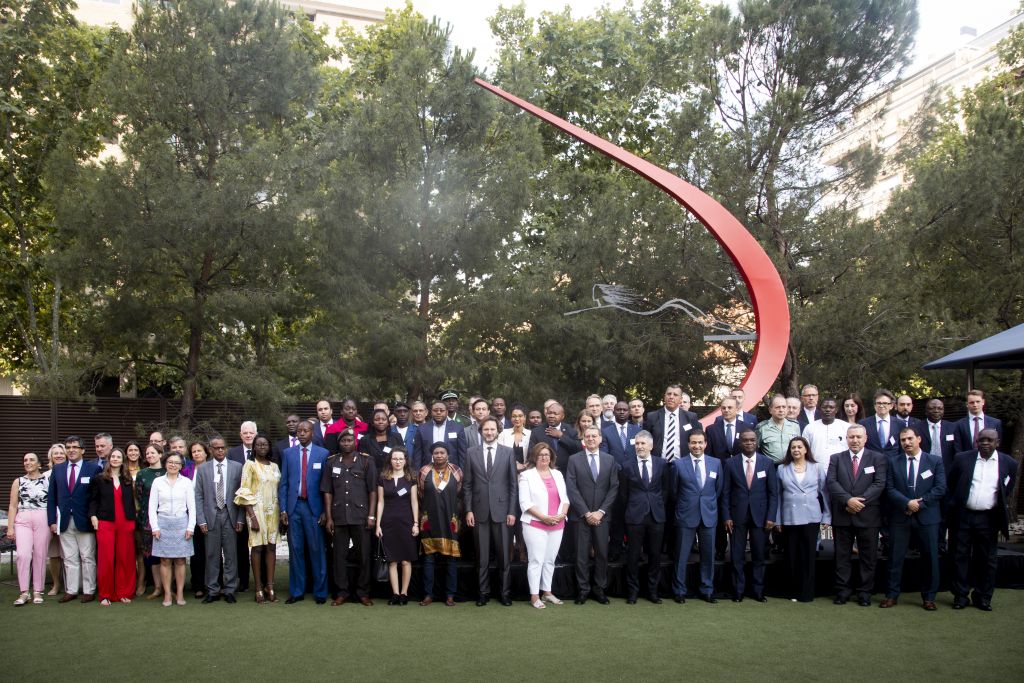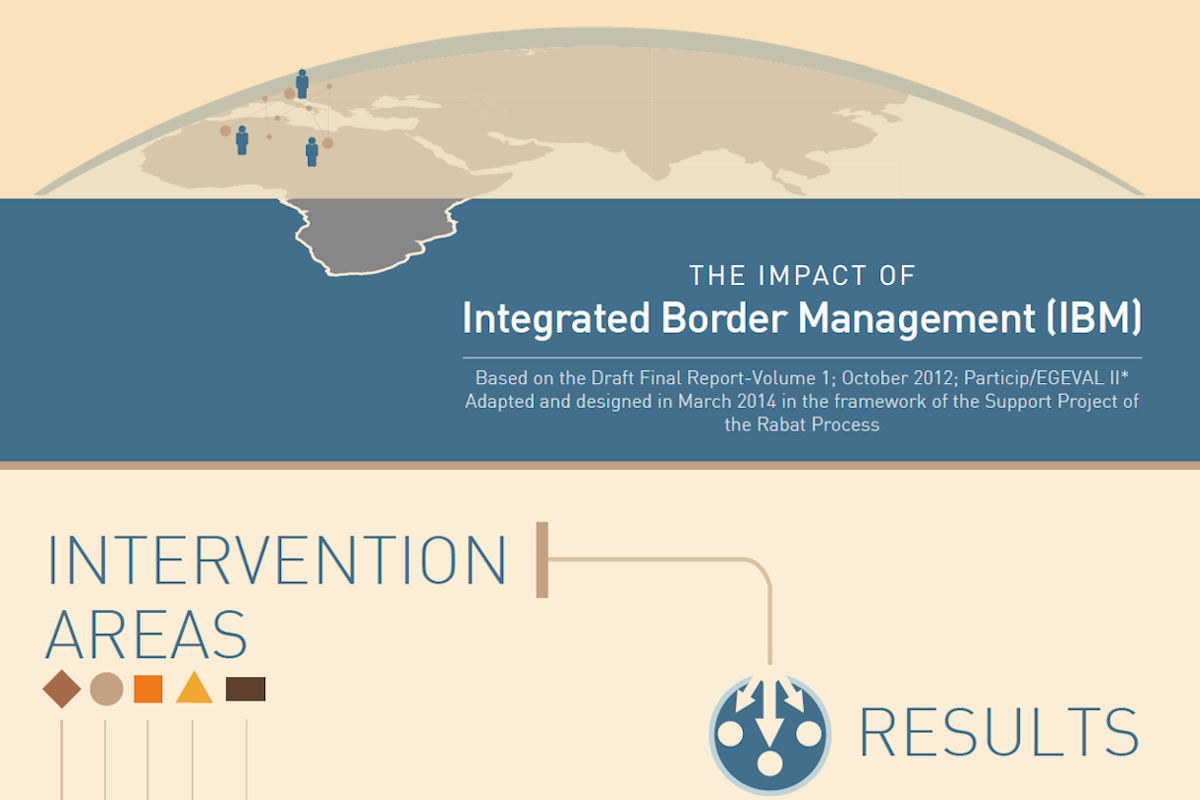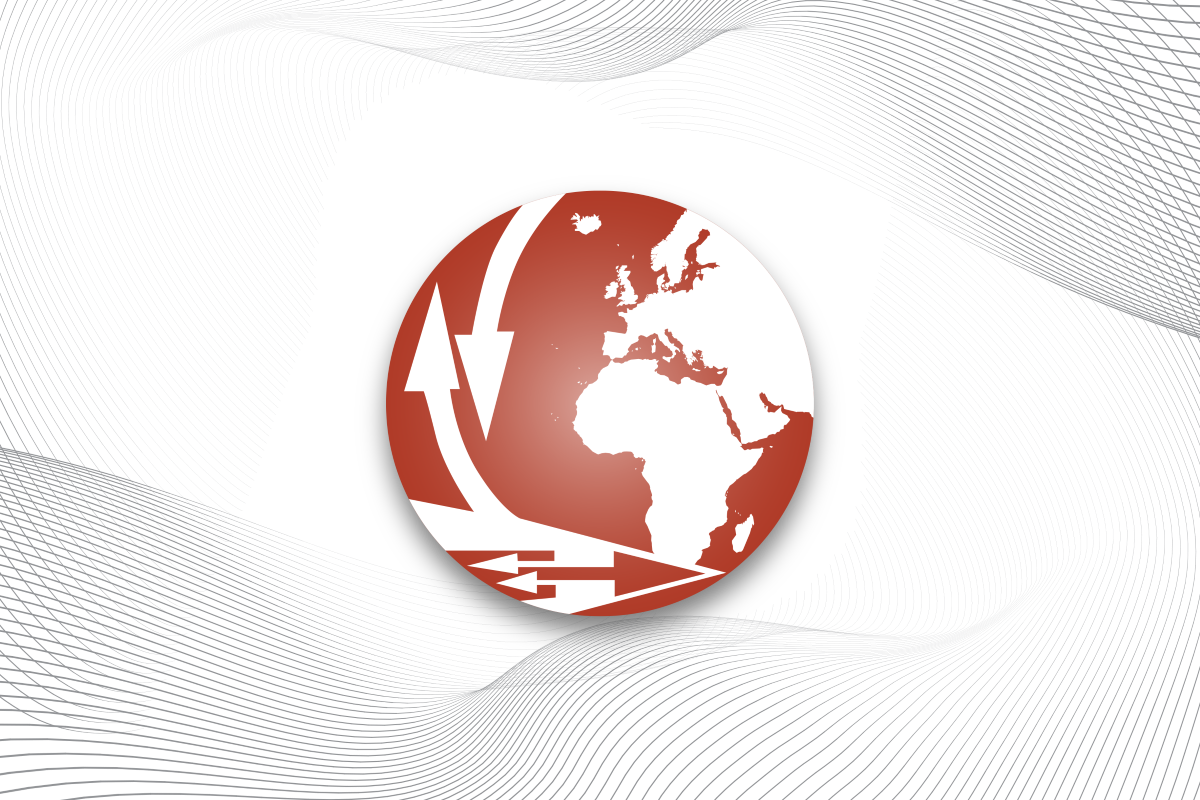Madrid, 1-2 July 2019, hosted by Spain and co-chaired by Morocco.
The Rabat Process organised a Technical Meeting on “Cooperation between Countries of Origin, Transit and Destination in the Field of Border Management” in Madrid, Spain between 1st and 2nd July 2019. The meeting, held under the co-chairmanship of the Kingdom of Spain and the Kingdom of Morocco, gathered 80 participants representing 33 partner countries of the Dialogue, the EU Delegation and ICMPD experts. For the first time Lebanon – a country that is not partner of the Dialogue – was invited to join the discussions in order to share its knowledge of and experience in border management in its very specific context.
High level presence and context of the Thematic Meeting
In recognition of the importance of this topic for the partners, high officials – such as Fernando Grande-Marlaska, Spanish Minister of the Interior; Khalid Zerouali, Director of the Migration and Border Surveillance Directorate of the Moroccan Ministry of the Interior; Paraskevi Michou, Director-General of DG HOME; Jean-Marie Bruno, Head of the International and European Affairs Department of the Directorate General for Foreigners in France and Martijn Pluim, Director of Migration Dialogues and Cooperation at ICMPD – addressed participants during the opening ceremony. They presented good practices jointly implemented by African and European partners in the field of border management and expressed the need to continue working to expand and intensify the cooperation in this field, as a key component of a comprehensive, effective and balanced migration policy.
In recent years, the fight against irregular immigration, migrant smuggling and – more broadly, border management – are themes on which States in the Rabat Process region have increasingly focused their attention. This has revealed a common interest in identifying possible solutions between countries of origin, transit and destination along the migration routes linking Western, Central and North Africa and Europe. Since its inception, the Rabat Process has paid particular attention to the objective of strengthening national border management capacity. For example, the subject was included in the first Political Declaration signed in Rabat in 2006, and in subsequent Ministerial Declarations. Furthermore, it is a priority for the Dialogue under the current strategic framework (the Marrakesh Political Declaration and Action Plan 2018-2020).
Reflecting on the challenges and opportunities posed by increased global mobility, Mr. Martijn Pluim, Director of Migration Dialogues and Cooperation, ICMPD stated that “well-functioning and efficient borders are the foundation that supports regional mobility and development. This meeting enables us to build on the work done since 2013, move forward in implementing the Marrakech Action Plan and constitutes an important opportunity to learn from each other. I am pleased to see concrete operational projects presented and discussed, concrete practices identified as well as technical experts from so many countries coming together to share their valuable knowledge.”
Focus on the reality in the field
The meeting focused on good practices for bilateral and regional cooperation in the fields of combating irregular immigration and, more broadly, border management. Experts with technical knowledge i.e. members of the armed forces, the police, customs or the border guards from African and European countries shared their experience with their counterparts. Several projects and programmes illustrating cooperation practices in this area, and the backgrounds against which these initiatives were developed, were presented by actors involved in their implementation, helping to make partners aware of the challenges and constraints encountered. ICMPD’s expertise in Africa and the Middle East showcasing projects implemented by the organisation in Tunisia, Morocco, and Lebanon brought added value to the discussions.
Cooperation and adaptation as key steps to move forward
During the meeting, all participants underlined that border management challenges cannot be overcome by one single country and that strong regional coordination is needed. Furthermore, the experts emphasised the evolving character of the concept of borders. As within Africa (i.e. Economic Community of West African States free movement zone) and Europe (i.e. Schengen) open borders are promoted, there is a need to be part of a connected framework and information-sharing system. The challenge of balancing the right to free movement and the right of states to manage their borders was also highlighted.
The participants agreed that, in order to meet the challenges of border management coordination, adaptation to the environment and resources available, and mutual learning are needed. In that regard, the practical focus of the Rabat Process and the platform which it offers for informal exchanges between peers, has been, and will continue to be particularly relevant.





